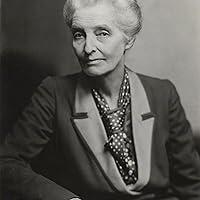
Beatrice Potter Webb
Sobre el Autor
Beatrice Potter Webb was a prominent social reformer, economist, and co-founder of the London School of Economics. Born in 1858 in Clapham, London, she dedicated her life to the study of social issues and the organization of labor. Webb was instrumental in the development of social science as a discipline, focusing on how to improve the lives of the working class through her extensive research and writings. Her work often centered on the intersection of economics and social justice, making her a key figure in early 20th-century British socialism.
Throughout her career, Webb collaborated with her husband, Sidney Webb, and other notable figures, including George Bernard Shaw and H.G. Wells. Together, they analyzed the social and economic conditions of their time and advocated for reforms that would lead to a more equitable society. Webb's writings, such as "Industrial Democracy" and "Problems of Modern Industry," are still referenced today for their insightful analysis of labor relations and the role of government in shaping economic policy. Her legacy continues to influence contemporary discussions on social democracy and welfare economics.